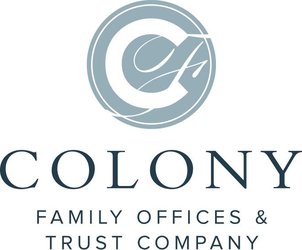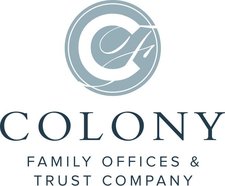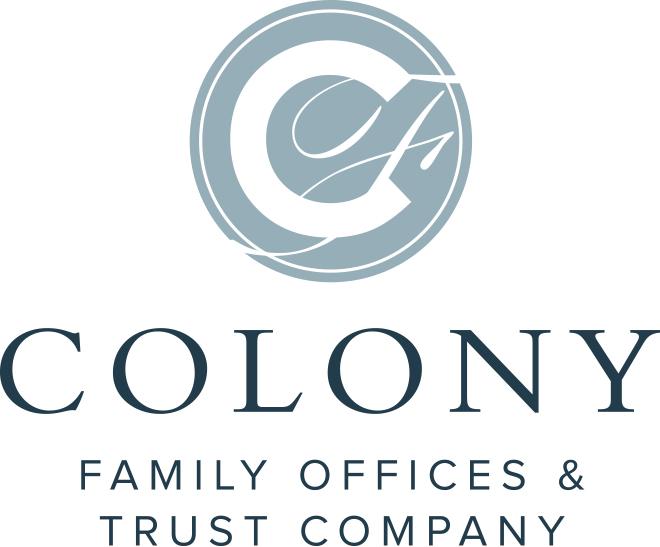Structuring Taxable Sales
What is it?
If you are selling your business, you need to be aware of all the various issues involved so that you can structure the sale to your advantage and maximize your profit. One of the questions small-business owners ask is what the tax consequences of selling their business will be. Unfortunately, tax considerations can be daunting and will vary in complexity from one situation to the next.
There are ways to structure the sale of your business to avoid or at least defer your tax liability. However, while these strategies might seem like golden opportunities, they are not without tradeoffs. You may find that your particular circumstances do not favor a tax-free sale. You might prefer, for instance, to sell your business for cash rather than receive payment in corporate stock as required by a tax-free sale. If so, you may opt to structure the sale of your business as a taxable sale. Although there are ways to minimize your tax exposure, a taxable sale will generally trigger income tax, capital gains tax, or some combination thereof on the gain you realize from selling your business.
Taxable asset sale
A taxable sale will usually involve selling your business's assets to an acquiring corporation, an individual, or another party or group (such as a partnership) in exchange for cash or other consideration. You should make sure that your contract with the buyer specifies exactly what assets you are selling. The sale price must be allocated to the assets, and you must determine your gain or loss and the type of tax liability for each asset you sell. This can be tricky because the tax rate will depend on whether the gain (or loss) is treated as ordinary income or as a capital gain (or loss). In turn, which of those categories the taxable gain falls into will depend on the specific kind of asset you sell. For tax purposes, assets are classified into three basic types:
- Capital assets: Generally speaking, a capital asset is an asset that, when sold or otherwise disposed of, results in a capital gain or loss. The capital gain or loss is considered short term if the asset is held for one year or less, and long term if the asset is held for more than one year. Long-term capital gains are generally eligible to be taxed at a lower rate than short-term capital gains and ordinary income. However, corporate taxpayers pay tax on capital gains (regardless of the holding period) and ordinary income at the same rates. Examples of capital assets include investment property such as stocks and bonds, as well as some other forms of property such as buildings, machinery, or forklifts.
- Section 1231 assets: Section 1231 assets include a wide range of personal and commercial property, including some assets that would otherwise be treated as capital assets. For each individual asset classified as a 1231 asset, the tax treatment of a gain (or loss) will depend on the net result of all transactions involving all of your 1231 assets. If the net gains exceed the net losses, the gain may be treated as a long-term capital gain. If the reverse is true, the loss may be treated as an ordinary loss rather than as a capital loss.
- All other assets: All other assets include assets not classified as capital assets or Section 1231 assets for tax purposes. The gains resulting from sales of these assets will generally be treated as ordinary income.
Buyers typically prefer a sale of company assets to company stock (see below) because the buyer is able to deduct depreciation for certain assets. However, for the seller, this may mean that part of the gain on the sale will be taxed as ordinary income at the higher ordinary income tax rates. This is because depreciation and amortization taken by the seller on certain business assets must be recaptured.
Taxable stock sale
You can also structure the sale of your business as a taxable stock sale. You simply sell the controlling interest of your business's stock to the buyer in exchange for cash or other consideration. In contrast to the taxable gain on an asset sale, the taxable gain on a stock sale will be treated entirely as a capital gain or loss (if qualified) and will generally be taxed at a single flat rate. This may or may not work to your advantage depending on your tax bracket. The sale of ownership interests in a partnership or a limited liability company will receive similar tax treatment.
Because of the complexity of the tax issues involved and the frequency with which IRS regulations change, you should consult your tax advisor and/or attorney to help you determine whether you should structure the sale of your business as a taxable asset sale or as a taxable stock sale.
When can it be used?
You can structure a taxable sale as long as you own a business and want to sell it. Of course, you should also be willing to bear the tax consequences of receiving payment in the form of cash or other taxable consideration.
Strengths
A taxable sale can provide you with instant cash
Whereas a tax-free sale lets you avoid immediate tax liability because you may receive payment in the form of stock from an acquiring corporation, a taxable sale results in one or more taxable payments in the form of cash or other consideration. Despite the tax consequences, there are advantages to receiving payment in cash as opposed to stock. Stock ownership not only exposes you to the vagaries of the stock market (provided that the stock is publicly traded) and the risks of investing in the issuing corporation, but also may provide you with less liquidity than cash. This is particularly true if the corporation from which you receive the stock is not publicly traded or if federal securities laws require you to hold the stock for up to two years. A cash sale avoids these problems and gives you easy access to the sales proceeds and control over your income. You can then use these funds to pay off creditors, make planned purchases, or add to your securities laws.
Many taxable sales involve financing of some type. Specifically, many are structured as installment sales that provide you with regular payments over a period of several years or more. This may be something you wish to avoid if you need the full cash amount right away to meet certain expenses. If so, you might want to find potential buyers who are willing to structure the transaction as a lump-sum cash distribution.
A taxable sale gives you more than one option
Because there is more than one way to structure a taxable sale, it provides you with a great deal of flexibility. You can tailor the transaction to your own particular cash needs and tax situation. If you desperately need cash right away, insist on a lump-sum cash buyout. However, if you want to ease your tax burden by spreading out your tax liability, you may be able to arrange an installment sale. An installment sale may be able to allow you pay taxes each year based on the sale payments you received for that particular year. Many installment agreements call for a large initial payment followed by regular smaller payments.
The capital gains portion of installment payments will be taxed at the lower long-term capital gains tax rates.
Keep in mind that an installment sale may have estate tax consequences if you die before the buyer's payments to you have ended.
A taxable stock sale transfers your liabilities
A taxable stock sale will transfer not only your shares of stock but also your business's assets and liabilities, unless otherwise specified. Thus, structuring a taxable stock sale may free you of the burden of your business's pre-existing liabilities.
In the case of an installment sale, the contract between you and the buyer may contain a provision allowing the buyer to withhold sale payments owed to you in the event that unknown or undisclosed liabilities arise in the future.
A taxable asset sale may be easier to complete because it favors the buyer
A potential buyer may be reluctant to purchase your company's stock knowing that all sorts of unknown or undisclosed liabilities may arise in the future. For this reason, the buyer may prefer to purchase your company's assets to avoid the transfer of liabilities. An asset sale also provides the buyer with a stepped-up tax basis and other tax benefits. In effect, because a taxable asset sale generally favors the buyer, you may have an easier time finding a buyer and completing a sale if you agree to structure the transaction as a taxable asset sale.
Tradeoffs
A taxable sale will trigger tax liability
As its name suggests, the major drawback to a taxable sale is that you will have to pay taxes on the gain you realize from the sale of your business. If you structure a taxable stock sale, your entire gain may be taxable at one flat rate as a long-term capital gain (if qualifications for long-term treatment are met). However, if you structure a taxable asset sale, your total tax liability will depend on the particular types of assets you sell. When some assets are sold, they trigger gains that the IRS treats as capital gain, while others trigger gains that the IRS treats as ordinary income. The sale of your business's assets may result in a gain broken down into capital gains taxable at one or more rates and ordinary income taxable at a different rate. In effect, the choice between a stock sale and an asset sale may hinge upon your particular tax bracket. However, regardless of whether you choose a sale of assets or a sale of stock, be aware that a taxable sale of your business will have considerable tax consequences.
In addition to capital gain and/or income tax considerations, there may be estate tax issues.
Whether you opt for a stock sale or an asset sale, keep in mind that you may be able to minimize your tax exposure by arranging an installment sale to spread out your tax liability over several years and avoid a heavy one-year tax burden.
Your liabilities remain after a taxable asset sale
Unlike a stock sale, a taxable asset sale will generally not transfer all of your liabilities to the buyer (only those related to the assets sold). You must therefore use the proceeds received from the buyer to pay off those liabilities yourself before you can dissolve your business. Depending upon how substantial your liabilities are, you may find that you have little or no cash left after paying them off.
Some assets pass to a buyer encumbered with outstanding loans and/or other liabilities, so there are exceptions to the general rule that your liabilities remain after an asset sale.
Assumption of liabilities in a taxable asset sale may be a negotiable issue. Be certain you understand exactly which liabilities the buyer has agreed to assume.
A taxable stock sale may be more difficult to complete because it does not favor the buyer
The fact that a taxable stock sale generally transfers your liabilities is a double-edged sword. A stock sale clearly favors you as the seller and is probably a good idea if you can find a buyer willing to pay you a fair price for your shares. However, because a potential buyer may not want to take the risk of assuming all your business's unknown or undisclosed liabilities, it may be more difficult to find a buyer and complete a stock sale.
There are ways to make a stock sale more attractive to a potential buyer. You can agree to include in your contract a provision that gives the buyer the right to reduce the amount of future payments to you in the event that unknown or undisclosed liabilities arise down the road. Or you can simply negotiate a lower sale price as an incentive for a buyer to assume your business's liabilities.
If you are set on selling stock but are having trouble finding a buyer, there are options you may want to look into. You can sell your shares to your company's employee stock ownership plan (ESOP) or to the public through an initial public stock offering (IPO).
A taxable stock sale may be subject to federal and state securities laws
If you opt for a taxable stock sale, be aware that the sale of the stock of a closely held corporation may be subject to federal or state securities laws. Consequently, you should disclose anything the buyer should know about your business, including all liabilities, to avert the possibility of securities fraud litigation. Many taxable sales are exempt from federal securities laws, but you should still be aware of these laws and how they might apply to your transaction. You should consult an attorney familiar with securities law issues for more information.
How to do it
Hire an attorney and/or tax advisor to assist you with setting up the transaction. Determine the fair market value of your business, take other steps to prepare the business for sale, and find a corporation or other buyer willing to purchase the business. Determine if a taxable sale of shares or assets would be more appropriate in your case. Finally, negotiate the terms of a sale with the buyer and have your attorney(s) draw up a contract.
Tax considerations
Capital gain and income tax considerations
Whether you structure the taxable sale of your business as a sale of shares or assets, there will be tax ramifications. Your tax liability will come in the form of capital gains tax, regular income tax, or some combination of the two. A stock sale may trigger a gain that the IRS treats as a long-term capital gain taxable at a flat rate, assuming the stock has been held for more than one year. With an asset sale, however, the tax consequences may be a little more complicated. For tax purposes the IRS classifies assets into three categories: capital assets, Section 1231 assets, and all other assets. The gain you realize on one type of asset may be taxable at one rate as a capital gain, while the gain on another asset may be taxable at a different rate as ordinary income. To further complicate matters, there are different capital gains tax rates that apply to different categories of capital gains. The capital gains rate on the sale of a given asset can depend upon the type of asset as well as on how long you held it.
While each asset you sell will result in a taxable gain (or loss), the rate at which the gain is taxed will vary depending upon different factors. Since your regular income tax rate could be either higher or lower than the applicable capital gain rates, it may or may not be a good idea from a tax standpoint to structure an asset sale as opposed to a stock sale. Consult a tax advisor for further information.
Keep in mind that Section 1258 of the Internal Revenue Code prevents you from converting ordinary income from certain financial transactions into capital gains and thereby benefitting from more favorable tax treatment.
Another important tax question concerns the payment plan that you and the buyer agree upon. If you wish to avoid a large tax bill for the year in which you sell your business, you might want to consider alternatives to a lump-sum cash buyout. You may be able to structure the transaction as an installment sale so as to spread out your tax liability over a period of several years or more.
There may be other tax issues to consider. For instance, additional IRS rules may apply if you liquidate your business after selling off your assets. If your business is an S corporation that was formerly a C corporation, it may be subject to what is known as a built-in gains tax under IRS Section 1374. For more information on these and other tax issues, you should consult an experienced tax advisor.
Gift and estate tax
If you structure a taxable sale of your business, you may have to worry about estate taxes in addition to income tax and capital gains tax. If you sell your business and receive a lump-sum cash distribution, and you use the proceeds to add to your investment portfolio, then the principal plus any interest earned will enter your estate upon your death. If that amount plus the value of the other assets in your estate exceeds the applicable exclusion amount, your estate may be subject to federal estate taxes.
An installment sale may also have estate tax consequences. If you die before receiving payment in full from the buyer, then the remaining balance owed to you would enter your estate and add to its value. If that balance plus the value of the other assets in your estate exceeds the applicable exclusion amount, your estate may be subject to estate taxes. However, bear in mind that only the present value of any unpaid installment payments would be included in your estate at the time of your death. Any appreciation in the value of your business after the time of the sale would not be included in your estate. Thus, for estate tax purposes, an installment sale essentially freezes the value of your business at the time of the sale.


